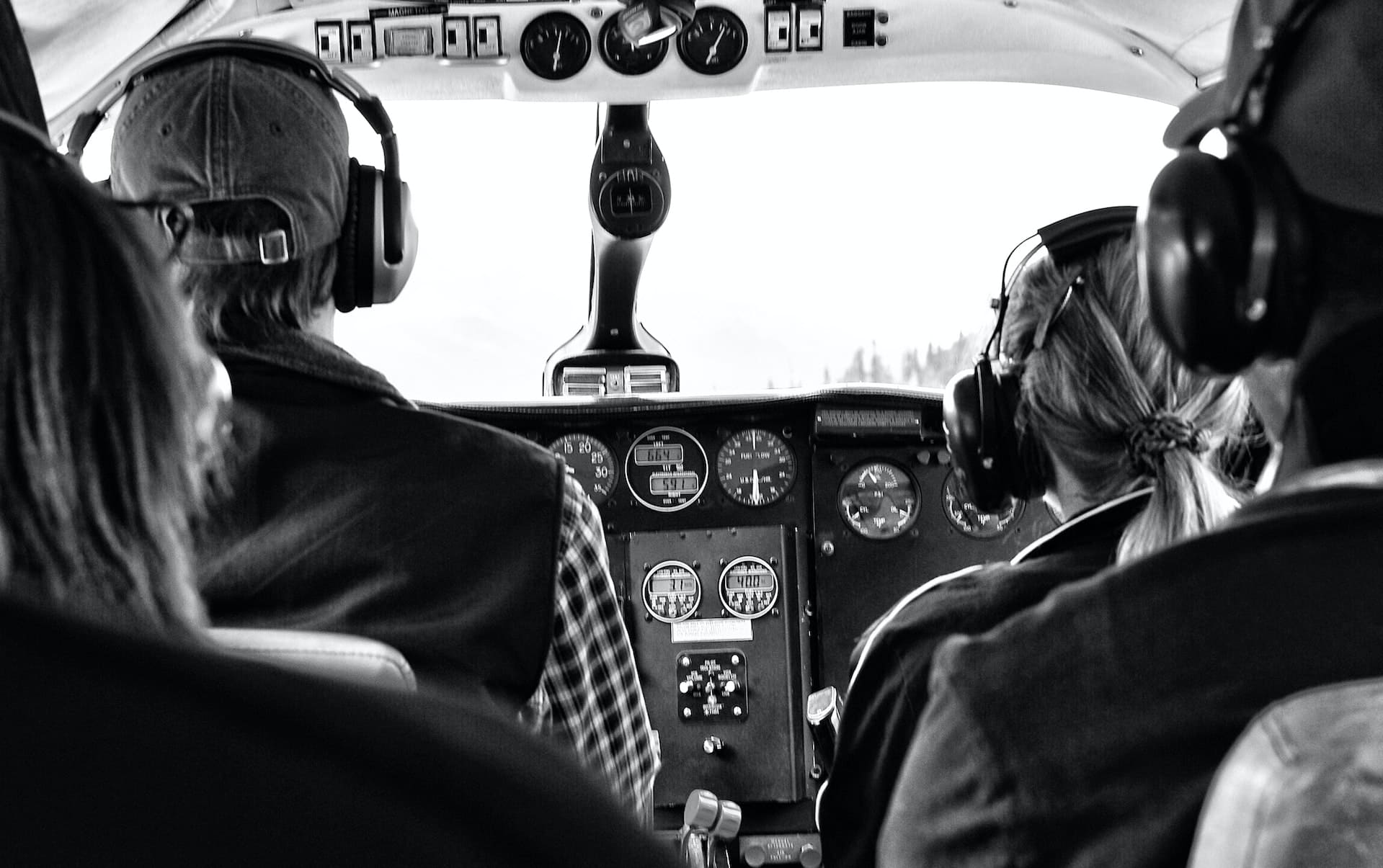When we think of pilots and aviation, we often imagine professionals who are highly skilled in aircraft operation. While it is true that technical skills are fundamental to piloting, we should not underestimate the crucial role that non-technical skills play in flight safety and efficiency. In this article, we will explore the non-technical skills that every pilot must develop to become an exceptional aviator.
Non-technical skills for a pilot
-
Effective communication
Clear and effective communication is essential for a pilot, especially during critical situations. The ability to convey information concisely and understand instructions received is vital to avoid misunderstandings and make informed decisions. In addition, a pilot must be able to communicate effectively with crew and ground personnel.
-
Decision-making under pressure
Pilots face high-pressure situations in the air, where every second counts. The ability to make quick and accurate decisions can make the difference between a safe landing and a serious incident. Training in decision making under pressure and the ability to evaluate the available options are crucial in dealing with unexpected scenarios.
-
Stress management
Stress is an inevitable part of a pilot’s life, especially during complicated situations or emergencies. Mastering stress management techniques is essential to remain calm and focused, thus ensuring flight safety and the well-being of passengers and crew.
-
Teamwork
Aviation is a team effort, and pilots must work closely with crew and other industry professionals to ensure operational efficiency. Effective teamwork involves the ability to communicate openly, respect the opinions of others and coordinate efforts to achieve common goals.
-
Situational awareness
Situational awareness is the ability to constantly understand and assess the aircraft’s operating environment. This involves being aware of position, speed, weather conditions, air traffic and any other relevant variables that may affect the safety of flight. Pilots must develop sound situational awareness to make informed decisions and adapt to unexpected changes.
The importance of non-technical skills in aviation
While technical skills are indispensable, non-technical skills play an equally crucial role in aviation. Human interaction, communication and the ability to manage stress are factors that influence flight safety and efficiency. A pilot with excellent non-technical skills can contribute to a harmonious work environment, solve problems effectively and ensure a positive passenger experience.
How to develop non-technical skills
-
Training and simulations
Pilot training programmes should include specific training in non-technical skills. Flight simulations and realistic scenarios help pilots practice decision-making under pressure, effective communication and stress management in a controlled environment. This type of training improves pilots’ confidence and responsiveness in critical situations.
-
Mentoring and advice from experienced pilots
Novice pilots can benefit greatly from the guidance of experienced pilots. Mentors can share their experiences, provide valuable advice and offer a unique perspective on how to develop non-technical skills. Establishing connections with established industry professionals can be an excellent way to gain additional knowledge and skills.
-
Personal development outside aviation
Non-technical skills development is not limited to aviation. Participating in activities outside the industry, such as leadership courses, volunteer work or communication practices, can broaden a pilot’s interpersonal skills and adaptability. These enriching experiences can provide a broader perspective and enhance non-technical skills in general.
Conclusions
In conclusion, non-technical skills are vital for any pilot wishing to achieve excellence in aviation. Effective communication, decision-making under pressure, stress management, teamwork and situational awareness are fundamental skills that need to be developed and honed. By combining technical and non-technical skills, pilots can ensure safe and efficient flights, providing an enjoyable and reliable experience for passengers.
Frequently Asked Questions
Are non-technical skills really important for a pilot?
Yes, non-technical skills are equally important for a pilot, as they influence the safety and efficiency of flights.
How can I improve my communication skills as a pilot?
You can improve your communication skills by participating in training programmes that include specific communication training and by practising effective communication in real-life situations.
Is it possible to develop non-technical skills outside aviation?
Yes, personal development outside aviation, such as participating in leadership activities or volunteer work, can contribute to the development of non-technical skills.
Why is situational awareness important for a pilot?
Situational awareness enables a pilot to constantly understand and assess the aircraft’s operating environment, which is crucial for making informed decisions and adapting to unexpected changes.
What is the role of teamwork in aviation?
Effective teamwork in aviation involves the ability to communicate openly, respect the opinions of others and coordinate efforts to achieve common goals, which contributes to a more efficient and safer operation.
Visit our YOUTUBE channel www.youtube.com/@easbarcelona
